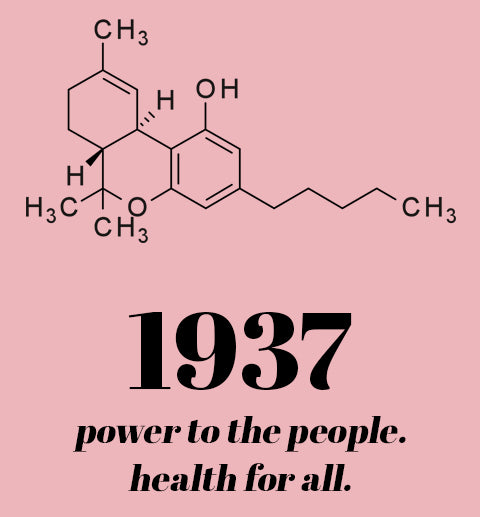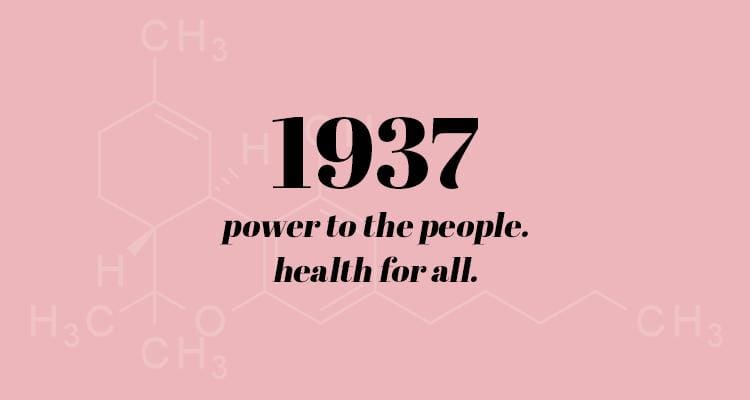Can CBD Help with Mood Disorders?

Mood disorders are mental health issues that affect a person's emotional state, and they’re more common than you might think. The National Institute of Mental Health says that 21.4 % of adults in the U.S. will experience some type of mood disorder at some point in their lives. Regardless of severity, CBD (cannabidiol) can offer a lifeline to those who are suffering.
Mood disorders are some of the most misunderstood mental health issues because they’re hard to diagnose. Family history can play a role, but not always. Sometimes they manifest early in life, and sometimes in retirement. There are prescription medications that can help, and for some people, these are exactly what they need!
But for others, they’re either not the right option...or they’re just not enough. If this sounds like you, or someone you know, then consider using CBD to improve your overall quality of life.
What is a Mood Disorder?
If you’re wondering what the heck a mood disorder is, we don’t blame you. We all experience bad moods every once in a while, but when does it evolve into a “disorder?” These are real medical conditions diagnosed by mental health professionals via psychiatric evaluations and medical history analysis.
Some contributing factors with mood disorders are imbalances of certain brain chemicals, stressful life changes, and sometimes a family history of mental health issues. However, you could have all of those things without a mood disorder, and you may have none of those things while having a mood disorder.
The Mayo Clinic says that when you experience a mood disorder, “your general emotional state or mood is distorted or inconsistent with your circumstances and interferes with your ability to function. You may be extremely sad, empty or irritable (depressed), or you may have periods of depression alternating with being excessively happy (mania).” Some common mood disorders are:
- Major Depressive Disorder
- Dysthymia
- Bipolar Disorder
- Substance-Induced Mood Disorder
What can be even more confusing is that two people could be diagnosed with the same mood disorder, but they may manifest different symptoms.
Common Mood Disorder Symptoms
The following, from Johns Hopkins Medicine, lists common symptoms associated with mood disorders:
- Ongoing sad, anxious, or “empty” mood
- Feelings of hopelessness, helplessness, guilt, low self-esteem, feeling inadequate or worthless
- Persistent thoughts of death or suicide
- Usual activities are no longer interesting
- Problems with relationships
- Sleep problems
- Appetite and weight changes
- Lower energy
- Inability to concentrate
- Indecisiveness
- Extreme sensitivity to failure or rejection
- Irritability, hostility, or aggression
These disorders are often treated with medication, psychotherapy, and family therapy. When these methods fail, however, feelings of hopelessness can worsen. That’s when many people turn to alternative options--like CBD.
How Can CBD help those with Mood Disorders?
One of the best parts about CBD is that it interacts with a naturally occurring communication system in your body known as your ECS (endocannabinoid system). The purpose of your ECS is to help maintain balance throughout the rest of your body. It can help balance your sleep/wake cycle, hormones, immune system, and so much more. There are ECS receptors throughout your body, which is why CBD can help with so many different issues.
What does that mean for people with mood disorders?
In a scientific review by the CNS & Neurological Disorders Journal, they found that most of the research about the ECS indicates that its presence in the limbic regions of the human brain makes it the ideal system to help regulate emotions, mood, and stress responses. However, when the ECS isn’t signaling properly as a result of a lack of natural endocannabinoids, it may result in depression and anxiety responses.
When you supplement with CBD, it provides your ECS with the necessary cannabinoids. This is what gives CBD it’s antidepressant and anxiolytic properties and what makes it a potential therapy for mood disorders.
There is still ongoing research as to whether or not we can definitively say that CBD can “help” mood disorders, but preliminary research and anecdotal evidence is very compelling. At the very least, it can help mitigate some of the symptoms associated with these disorders.
How to Use CBD for Mood Disorders
Luckily, there are several different ways you can integrate CBD into your life, so do some research and figure out which option is best for you!
We would always recommend starting with CBD Oils or Tinctures so that you can figure out what dosage works best for you. Once you figure out what dosage gives you the most relief, you can check out some alternatives. Many choose to stick with oils, however, because they’re more bioavailable via the sublingual method.
Sublingual administration means holding the CBD Oil under your tongue for 30-60 seconds before swallowing. When you take CBD sublingually, your body absorbs the CBD through the mucous membranes in your mouth. This completely bypasses the need for your liver to process anything, meaning you’ll get the most CBD and the effects will kick in faster and last longer than vaping.
If taking CBD Oil isn’t convenient, you can use CBD Vapes or CBD Gummies. Vaping is convenient because you can carry a discreet vaping pen around with you wherever you go. So, if you need a puff of CBD, you can get it right then and there. Make sure to read our Vaping How-To Guide if this sounds like your thing!
Not only are edibles tasty, but they’re also pretty inconspicuous. You can take your dose at whatever time of day suits you. And if you need another after lunch, your coworkers won't look twice.
The effects of edibles, like gummies, last the longest but they also take the longest to kick in. Vaping is the opposite. The effects kick in VERY quickly, but they last the shortest amount of time.
Disclaimer
Don’t get us wrong, we’re in love with CBD. It’s helped so many people and we hope it can help YOU! But if you’re already taking a prescription medication to help with any mental health issues, then we highly recommend caution.
We would never recommend that someone ditch their prescription medications in favor of CBD without consulting with their doctor first. There’s absolutely nothing wrong with taking prescription medications for mental health issues, but if you want to combine or swap them with CBD there are a few things you should know.
Antidepressants, anti-anxieties, and antipsychotics are incredibly powerful, and they can also take a while to build up enough in your system to be effective. So not taking those meds for a day or two doesn’t mean they’re out of your system. Depending on your exact medication, CBD may even interact with it.
A large portion of medications on the market today get metabolized by specific enzymes in the liver. Those enzymes are also the same ones that break down CBD. There’s a distinct possibility that CBD may inhibit the CYP450 enzyme, which is what breaks down those other medications. This means that if you take CBD with those medications, your liver may let too much of them into your system.
This is particularly important for those who are on blood-thinners or benzodiazepines (like Xanax). So if you have any preexisting medical conditions, and especially if you’re already on any prescriptions, consult with your doctor before trying CBD.
Try CBD for Your Mood Disorder Today
Living with a mood disorder can make everyday tasks feel insurmountable. They can strain your relationships and make it harder to live your best life. But there ARE options.
Maybe talking to a mental health professional can alleviate your symptoms and maybe taking a prescription will help. It’s also possible that CBD could provide you with the relief you’re looking for.
Honestly, we don’t care which method you choose; we just want people to be happy and healthy. We think that CBD can help, so we want to spread the word about CBD. But everyone has to decide for themselves whether or not it’s right for them.
If you think CBD is right for you then check out some of the products we have to offer and feel free to contact us to ask any questions. And if you’ve had a particularly great experience with CBD, definitely give us a shout-out on Instagram for a chance to be featured on one of our stories or even in one of our blogs!

Hannah Walker is a mostly-retired University English instructor who spends her time freelance copywriting. When not doing that, she’s writing articles related to CBD, skincare, and/or media. With an MA in English-Creative Writing she’s probably working on a creative piece at this very moment. See more about Hannah’s work on her website or on Instagram.




